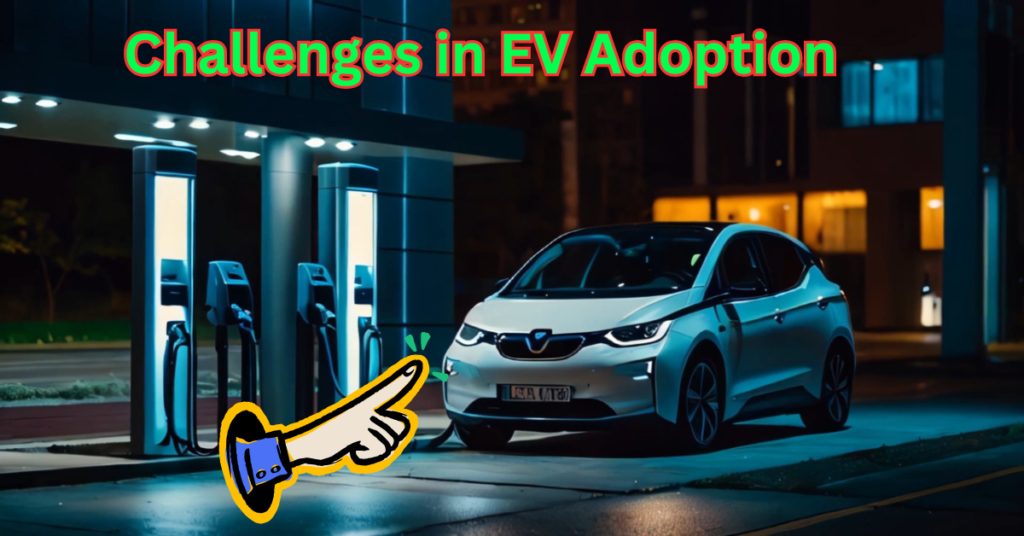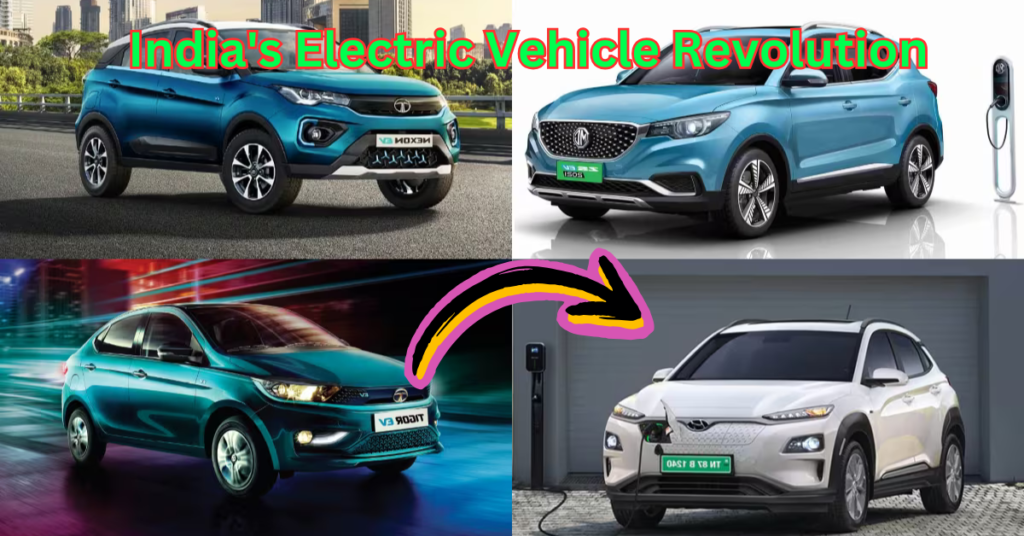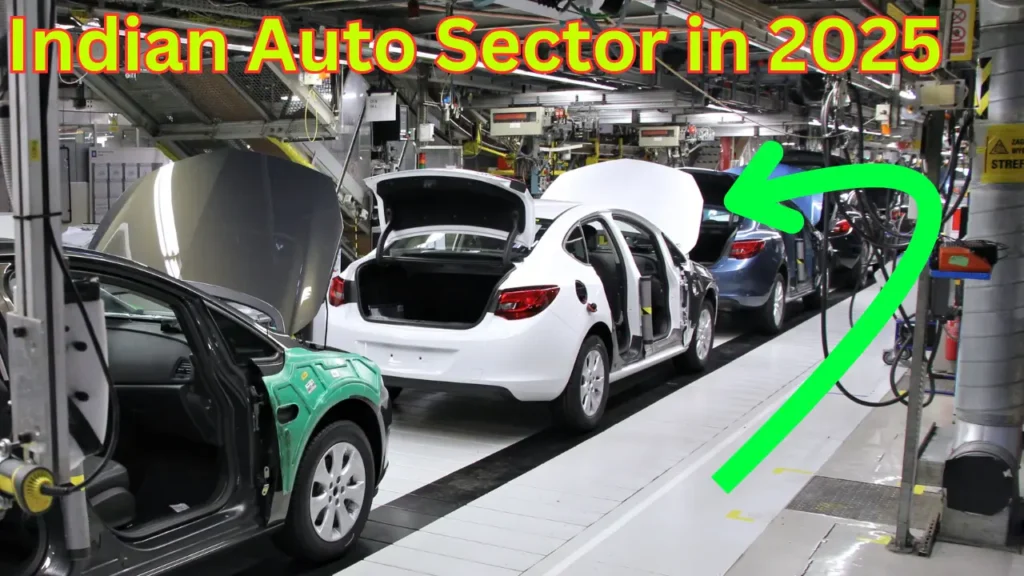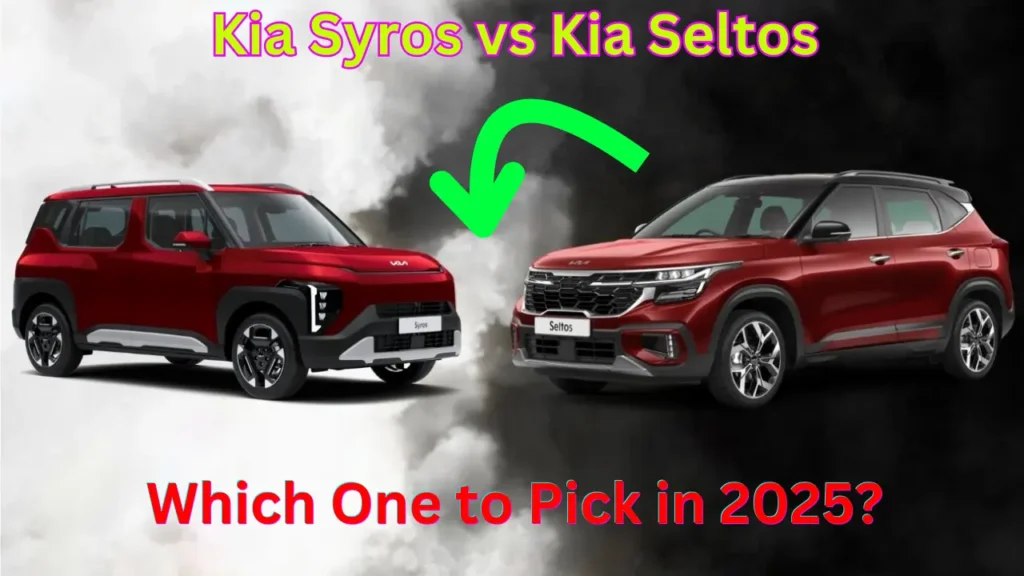India’s Electric Vehicle Revolution: India’s automotive industry is on the brink of a significant transformation in 2025, with leading carmakers gearing up to introduce a wave of electric vehicles (EVs). This surge in EV launches aims to cater to the growing demand for cleaner, greener mobility solutions. In response to evolving consumer preferences and stricter emission norms, automakers are rolling out advanced models featuring longer driving ranges, faster charging capabilities, and innovative designs. This article delves into the upcoming EV revolution in India, covering key launches, features, pricing, and the overall impact on the automotive sector.
The Current State of India’s EV Market
India’s EV market is still in its nascent stage, accounting for only about 2.5% of the 4.3 million cars sold in 2024. High upfront costs and an underdeveloped charging infrastructure have been major hurdles to widespread EV adoption. However, the Indian government’s ambitious goal to increase EV penetration to 30% by 2030 is driving significant industry changes. Leading automakers are responding by introducing new, more efficient EV models.
Statistics:
| Metric | Value (2024) |
|---|---|
| Total Cars Sold | 4.3 million |
| EV Sales Percentage | 2.5% |
| Total EV Units Sold | ~100,000 |
| Target EV Market Share (2030) | 30% |
| Global EV Sales Growth (2024) | 13% |
| India’s EV Sales Growth (2024) | 20% |
Upcoming EV Launches in India (2025)
1. Tata Motors
Tata Motors continues to dominate India’s EV sector. In 2025, it plans to expand its EV portfolio with models built on dedicated EV platforms rather than conversions from gasoline vehicles.
- Expected Models: Tata Curvv EV, Tata Harrier EV
- Range: Up to 500 km on a single charge
- Charging Time: 20%-80% in 25 minutes (fast charging)
2. Mahindra & Mahindra
Mahindra is poised to make a strong impact with its electric SUVs designed from scratch to offer premium features and extended ranges.
- Expected Models: Mahindra XUV.e8, Mahindra BE.05
- Range: Over 600 km
- Price Range: $22,000 – $35,000
3. Maruti Suzuki
India’s top-selling automaker, Maruti Suzuki, will finally enter the EV market with the launch of its first electric SUV.
- Model: Maruti e Vitara
- Development Partner: Suzuki Motor & Toyota
- Target Market: Urban and suburban consumers
4. Hyundai Motor India
Hyundai is betting big on the electric variant of its best-selling SUV, the Creta, to capture the EV market.
- Model: Hyundai Creta Electric
- Built in: India
- Range: 450-500 km
5. VinFast (Vietnam)
Vietnamese EV maker VinFast is making its Indian debut with a range of electric SUVs and MPVs.
- Models: VF3 (mini SUV), VF9 (three-row MPV)
- Investment: Building a factory in Southern India
6. BYD (Build Your Dreams)
BYD plans to showcase its premium electric SUVs tailored for Indian roads.
- Model: BYD Sealion 7
- Target Audience: Premium SUV buyers
Comparative Table of Upcoming EVs
| Brand | Model | Range (km) | Price Range ($) | Charging Time (20%-80%) |
|---|---|---|---|---|
| Tata Motors | Curvv EV, Harrier EV | Up to 500 | $20,000 – $30,000 | ~25 minutes (fast charge) |
| Mahindra | XUV.e8, BE.05 | 600+ | $22,000 – $35,000 | ~20 minutes (fast charge) |
| Maruti Suzuki | e Vitara | 400-450 | $18,000 – $25,000 | ~30 minutes |
| Hyundai | Creta Electric | 450-500 | $20,000 – $30,000 | ~25 minutes |
| VinFast | VF3, VF9 | 400-600 | $20,000 – $35,000 | ~30 minutes |
| BYD | Sealion 7 | 500+ | $35,000+ | ~20 minutes |
Clean Energy Alternatives Beyond EVs
Apart from pure EVs, several automakers are exploring alternative clean energy solutions:
- Plug-in Hybrid Electric Vehicles (PHEVs): Combining gasoline engines with electric motors for better efficiency.
- Flex-fuel Vehicles: Vehicles capable of running on multiple fuel types.
- Hydrogen Fuel Cell Vehicles: Emitting only water vapor, offering rapid refueling and long ranges.
- Gas-based Cars: Utilizing compressed natural gas (CNG) for cleaner emissions.
Challenges in EV Adoption

Despite aggressive EV launches, India faces several challenges in EV adoption:
- High Purchase Cost: EVs are still expensive compared to ICE (Internal Combustion Engine) vehicles.
- Charging Infrastructure: Limited charging stations hamper long-distance travel.
- Battery Replacement Costs: Expensive battery replacements deter long-term ownership.
- Consumer Awareness: Limited understanding of EV benefits and maintenance.
Government Policies and Incentives
The Indian government is implementing several initiatives to boost EV adoption:
- FAME II Scheme: Subsidies for EV buyers.
- GST Reduction: Lower tax rates on EVs compared to traditional cars.
- State-Level Incentives: Subsidies and tax rebates at the state level.
Future Outlook of India’s EV Market
Analysts predict that India’s EV sales could double in 2025 due to the launch of advanced models with extended ranges and faster charging. Premium EVs are expected to drive this growth, attracting consumers with innovative features and sustainable designs.
Conclusion Of India’s Electric Vehicle Revolution
India’s automotive industry is entering a transformative era with a surge in electric vehicle launches in 2025. Leading automakers like Tata Motors, Mahindra, Maruti Suzuki, Hyundai, VinFast, and BYD are introducing advanced EVs designed for the Indian market. While challenges persist, robust government policies and growing consumer interest are driving the transition towards sustainable mobility. The coming year promises to be a milestone in India’s journey toward a greener automotive future.
FAQs About India’s Electric Vehicle Revolution
Q1: Which is the most anticipated EV launch in India for 2025?
Mahindra’s XUV.e8 and Tata’s Curvv EV are highly anticipated due to their advanced features and extended ranges.
Q2: What is the expected range of new EVs in 2025?
Most new EVs will offer a minimum range of 400-600 km on a single charge.
Q3: Will EV prices in India become more affordable?
Government incentives and mass production could lower prices over time.
Q4: Which automaker is new to the Indian EV market?
Vietnamese EV maker VinFast is entering the Indian market in 2025.
Q5: How is the government supporting EV adoption?
Through schemes like FAME II, tax reductions, and state-level incentives.
Also Read: XPeng Aero HT Land Aircraft Carrier


